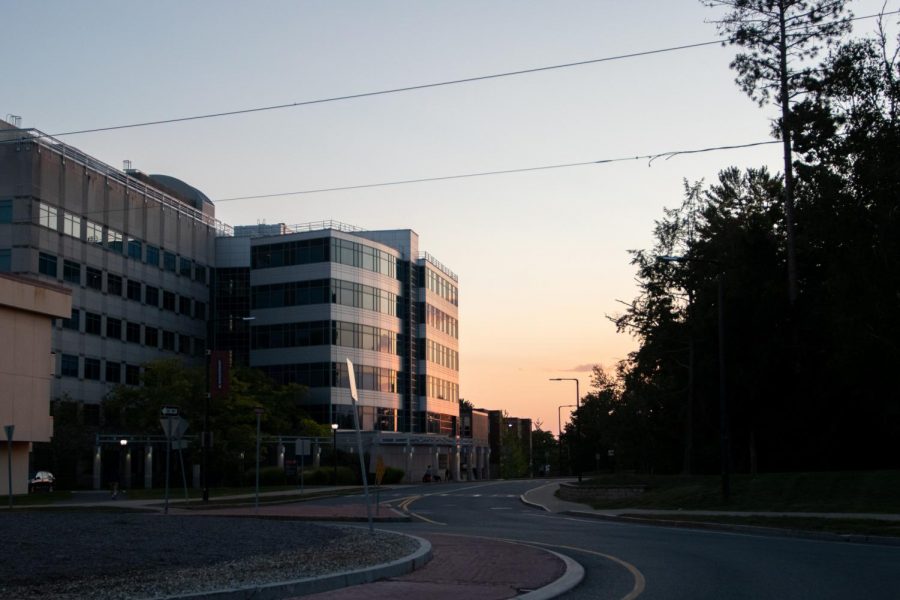Graduate students at the University of Massachusetts, like many others, have to adjust to remote learning and teaching over the past month. For some, this is their first experience teaching and starting out remotely has not been as fulfilling as they would have liked.
Nefeli Forni is currently getting her Ph.D. in comparative literature and a graduate certificate in film studies at the University.
As a teaching associate, Forni is both navigating online learning and teaching. Teaching is “alienating and demanding to adjust to, [but] I’m hopeful I’ll improve in time,” as finding a balance between content and modes of virtual teaching is difficult, Forni said via email.
Forni is currently living at home with her partner and his 8-year-old son. “I lived in North Village, [but] we were evicted… like all of the occupants of family housing during the pandemic.” Between financial instability and home responsibilities that come with parenting, “the pandemic has affected me in a myriad of ways… and has not allowed me to focus the same way on my studies,” Forni said.
Forni originally came to UMass for the opportunity to work with faculty in the film department, and while that doesn’t look the same way it had before, she still does not regret her decision to pursue her studies at UMass.
Despite the disadvantages and stress that comes with remote learning and teaching, Forni shared the way in which the pandemic has affected her positively.
“I feel it has called for more kindness, patience, understanding and flexibility in all areas of my life,” said Forni. “I feel intensely grateful for the amount of love, understanding, support and kindness I receive daily from personal and intimate circles and interrelations within my work environment and beyond. My students have been amazing and have been giving me so much.”
Joshua Burniece, a first-year music graduate student, provided another view.
Burniece originally chose UMass because of its offer to cover tuition and provide health benefits. “It was [either] covered tuition or no graduate program for me. Plus, the East Coast has fascinated me for a while, especially around the New England area,” Burniece said via email.
As a student who lives off-campus, Burniece shared that “remote learning allows for [him] to not have to rely so much on the bus. [He] can do classes from the comfort of [his] room,” which gives him more time that would normally be spent on the bus.
However, as a teaching assistant in collaborative piano, “remote teaching… is less than ideal.”
“I am a pianist, so playing piano over Zoom is a bit of a nightmare [and it creates] serious hindrances to my lessons,” said Burniece.
Additionally, while the University’s rules outlined in the Community Agreement are not a complete inconvenience to Burniece, he is tired of “the social barrier between [him] and other people.”
“I have all these people I work with, but I have no true idea of what they look like. If they were to take their masks off and stand at a distance, I would not be able to recognize them,” said Burniece.
Despite this lack of face-to-face connection, Burniece is finding solace within UMass. “I am grateful to Cru for welcoming me into their community with open arms, [as] I was hoping for a Christ-centered community.”
Lilliauna Hopkins is a first-year Ph.D. student in the political science department studying Black politics, policing, surveillance and mass incarceration as modern-day slavery.
Hopkins, currently living at home in Virginia, shared how the pandemic has affected her studies because she was not able to “dive into the next chapter of [her] life.”
“Living in fear of COVID-19 has completely changed my life… and has been quite detrimental mentally.” As someone who never slows down and loves to keep busy, Hopkins doesn’t “think [she’ll] ever look at being out and about the same ever again.”
As a student, Hopkins said remote learning is not that hard, as her field can function virtually. As for teaching, Hopkins said she is devastated.
“I’m the type of TA to bring my students goodies to supplement our classes and such and I can’t even do that. However, whenever we can safely resume operations without potential outbreaks every day, I’ll resume my usual teaching style, being as hands-on and flexible as possible,” Hopkins said via email.
Regardless of the tribulations, Hopkins is secure in her choice of UMass and feels that “it is a blessing to be a Black woman getting a PhD during a pandemic, [and] wouldn’t want to be anywhere else, doing anything but this.”
She left these words of wisdom for everyone during this unprecedented time: “Take a deep breath. You’ve got this… Do what you can, with what you have, and keep your head up! Things will only get better from here.”
Liza Flandreau can be reached at [email protected]. Follow her on Twitter at @liza_flandreau.



















